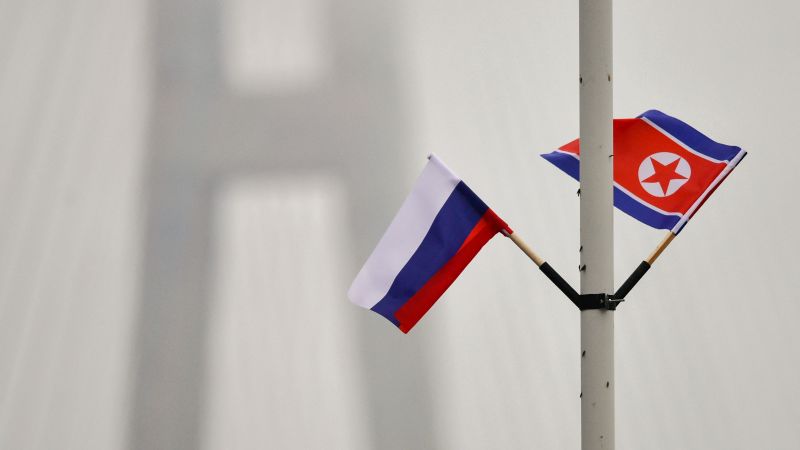North Korea is reportedly preparing to significantly increase its military support for Russia by sending an additional 25,000 to 30,000 troops to join the conflict in Ukraine. This intelligence comes from Ukrainian officials, who have shared their assessment with CNN. The move follows the deployment of 11,000 North Korean soldiers last November, who played a role in repelling Ukrainian forces from Russia’s Kursk region.
Despite suffering substantial casualties, with around 4,000 North Korean soldiers killed or injured, Pyongyang’s military cooperation with Moscow appears to be strengthening. According to the Ukrainian assessment, the Russian Ministry of Defense is ready to provide the necessary equipment and ammunition, aiming for further integration of North Korean troops into Russian combat units.
Strategic Movements and Preparations
Signs of preparation for the new deployment have been observed, including the arrival of a ship at a Russian port and cargo aircraft activity at North Korea’s Sunan airport. Satellite imagery obtained by CNN suggests these movements are consistent with previous deployments. The logistics of moving tens of thousands of troops across Russian Siberia, which borders North Korea, represent a significant undertaking.
Joe Byrne, a senior analyst at the Open Source Centre, noted, “Satellite imagery shows a Russian personnel carrier arriving at Dunai in May, and activity at Sunan airport in May and June. This appears to indicate the routes previously used to move DPRK troops are active, and could be used in any large-scale future transfer of personnel.”
Expert Opinions and Potential Implications
Jenny Town, a senior fellow and director of the Korean program at the Stimson Center, expressed skepticism about the high numbers suggested by the Ukrainian assessment. “The figure of up to 30,000 sounds high, but they can certainly come up with that number. They won’t be elite soldiers. Kim Jong Un has said he is all in, so it depends on what Russia has asked for,” she said. Town also suggested that North Korea might deploy the troops in stages.
Ukraine’s Defense Minister Rustem Umerov warned of the risks involved for North Korea. “Russia’s use of elite North Korean troops demonstrates not only a growing reliance on totalitarian regimes but also serious problems with its mobilization reserve,” Umerov stated. He added that Kim Jong Un risks destabilizing his own government by exposing so many troops to the high casualty rates at the front line.
Historical Context and Ongoing Developments
North Korea’s initial troop deployment to Russia in late 2024 was shrouded in secrecy, only confirmed by Russian President Vladimir Putin in April. Recent satellite images and reports indicate ongoing military cooperation between the two nations. Russian media have hinted at intensified collaboration, with videos showing North Korean troops integrating more closely with Russian forces.
Reports from the South Korean National Intelligence Service (NIS) suggest that North Korea is selecting personnel for overseas deployment, potentially as early as July or August. Meanwhile, Russia has publicly announced the deployment of additional North Korean mine clearers and military construction workers.
Future Prospects and Strategic Implications
The potential deployment of up to 30,000 North Korean troops marks a significant development in the ongoing conflict, reflecting North Korea’s deepening involvement. The strategic implications of this move are profound, as it highlights the strengthening alliance between Moscow and Pyongyang. This partnership not only impacts the dynamics of the conflict in Ukraine but also signals a shift in the geopolitical landscape.
Looking ahead, the international community will closely monitor these developments. The collaboration between Russia and North Korea raises questions about the future of global alliances and the potential for further military engagements. As the situation evolves, the responses from Ukraine and its allies will be critical in shaping the course of the conflict.
In conclusion, the revelation of North Korea’s planned troop deployment underscores the complex and evolving nature of international relations in the context of the Ukraine conflict. The coming months will be crucial in determining the impact of this development on the ground and beyond.
